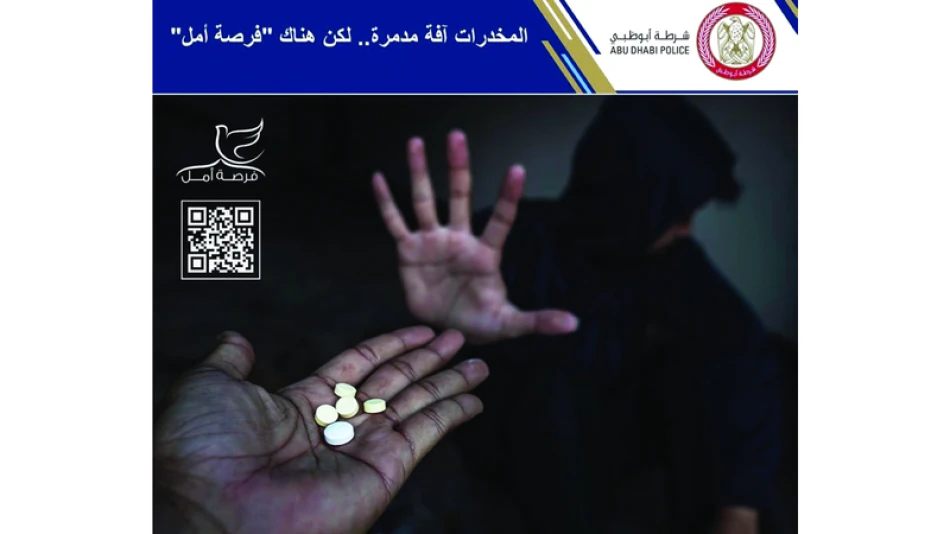
Recovered Addicts Face Social Isolation, Relapse Risks as Police Arrest Relative for Substance Abuse
Abu Dhabi Police's Anti-Narcotics Department has revealed deeply personal stories from their drug enforcement operations, showing how addiction stems from heartbreak, family rejection, and social isolation. The cases highlight a critical gap: many recovering addicts relapse because their families won't accept them back, forcing them to seek out drug-using friends again.
Colonel Taher Gharib Al Dhaheri, who heads the department, shared several striking cases. Two brothers, ages 19 and 20, walked into the police station and turned themselves in. They admitted to using crystal meth and wanted help getting clean. Police took their information and connected them with treatment centers.
But here's the problem that keeps coming up: about 70% of drug users express deep regret and want help, but many who do get clean end up using again. When investigators ask why, the answers are heartbreaking. Families reject them. Relatives won't let them in their homes. They get treated badly at family gatherings. So they go back to the only people who accept them - other drug users.
Al Dhaheri told the story of a young man who started using drugs after a failed love affair. His family opposed his relationship with a girl he wanted to marry. Heartbroken and depressed, he took a friend's advice to try drugs to forget his problems. The law was lenient since he had no prior record - he paid a fine and promised not to use again.
Most arrests happen among people aged 20 to 45, and police notice patterns in when dealers operate. They're most active during weekends, holidays, and just before evening prayers during Ramadan, thinking police are relaxed during these times. They're wrong - police are always watching.
The department emphasizes that officers carry out their duties regardless of personal connections. Al Dhaheri recalled one officer who insisted on personally arresting a drug user he knew was a relative, refusing to excuse himself from the mission.
Police say curiosity drives many young people to try drugs, along with boredom, absent family guidance, and bad influences. The health, behavioral, and economic damage can be severe, but there are ways to get help.
Abu Dhabi Police runs a service called "Chance of Hope" that handles reports with complete confidentiality. Families can contact the service to get treatment for relatives who've fallen victim to drugs. The person gets placed in addiction treatment centers with full privacy to protect the family's reputation.
The federal drug law offers real incentives for recovery. People who stay clean for six months can get certificates of good conduct and have their records cleared, allowing them to find jobs and move on with their lives as if the drug incident never happened.
This approach shows how enforcement and treatment can work together, but it also reveals the crucial role families play. When recovering addicts find acceptance at home, they're more likely to stay clean. When they face rejection, they often spiral back into the same destructive patterns that got them in trouble in the first place.
Most Viewed News

 Sara Khaled
Sara Khaled






